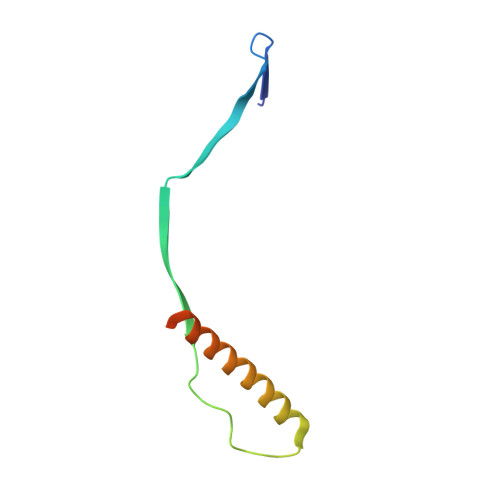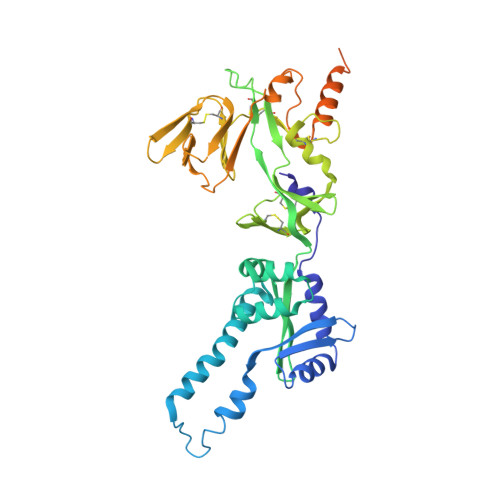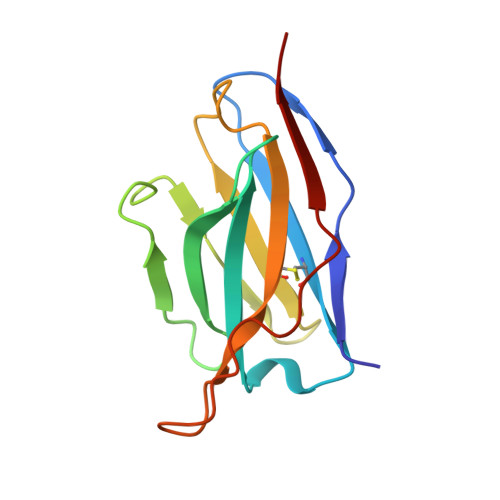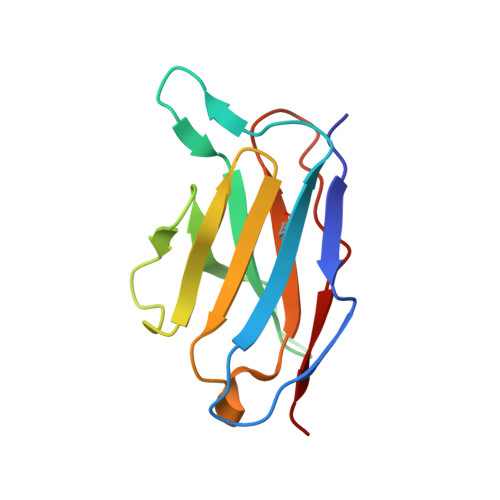Vaccination with prefusion-stabilized respiratory syncytial virus fusion protein elicits antibodies targeting a membrane-proximal epitope.
McCool, R.S., Musayev, M., Bush, S.M., Derrien-Colemyn, A., Acreman, C.M., Wrapp, D., Ruckwardt, T.J., Graham, B.S., Mascola, J.R., McLellan, J.S.(2023) J Virol 97: e0092923-e0092923
- PubMed: 37737588
- DOI: https://doi.org/10.1128/jvi.00929-23
- Primary Citation of Related Structures:
8T7A - PubMed Abstract:
Respiratory syncytial virus (RSV) is the leading cause of bronchiolitis and pneumonia in infants, infecting all children by age 5. RSV also causes substantial morbidity and mortality in older adults, and a vaccine for older adults based on a prefusion-stabilized form of the viral F glycoprotein was recently approved by the FDA. Here, we investigate a set of antibodies that belong to the same public clonotype and were isolated from individuals vaccinated with a prefusion-stabilized RSV F protein. Our results reveal that these antibodies are highly potent and recognize a previously uncharacterized antigenic site on the prefusion F protein. Vaccination with prefusion RSV F proteins appears to boost the elicitation of these neutralizing antibodies, which are not commonly elicited by natural infection.
Organizational Affiliation:
Department of Molecular Biosciences, The University of Texas at Austin , Austin, Texas, USA.


















